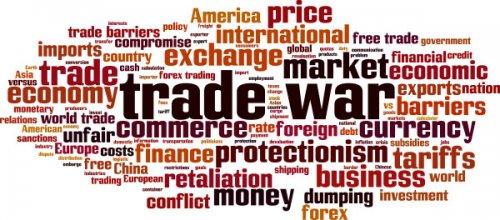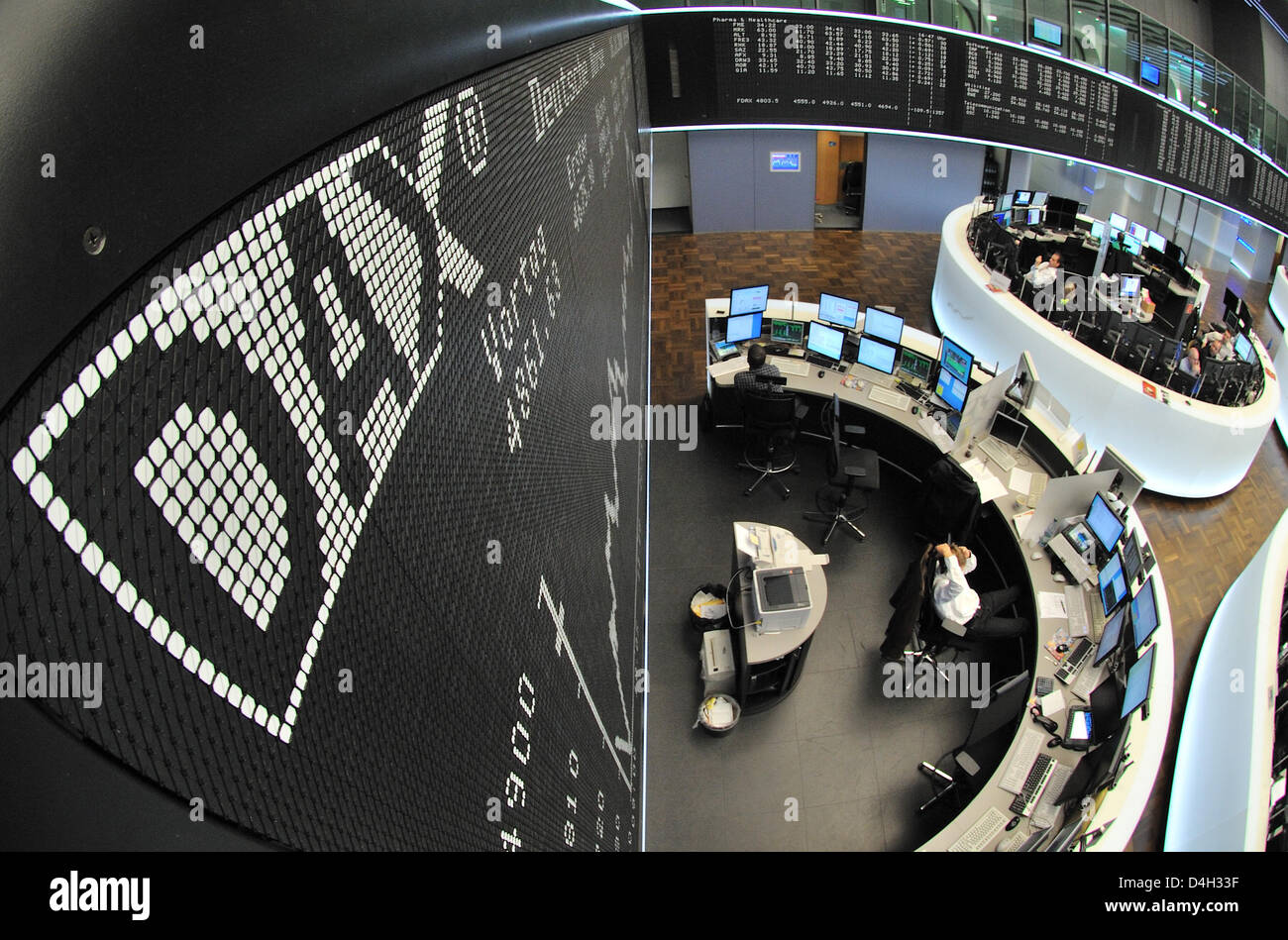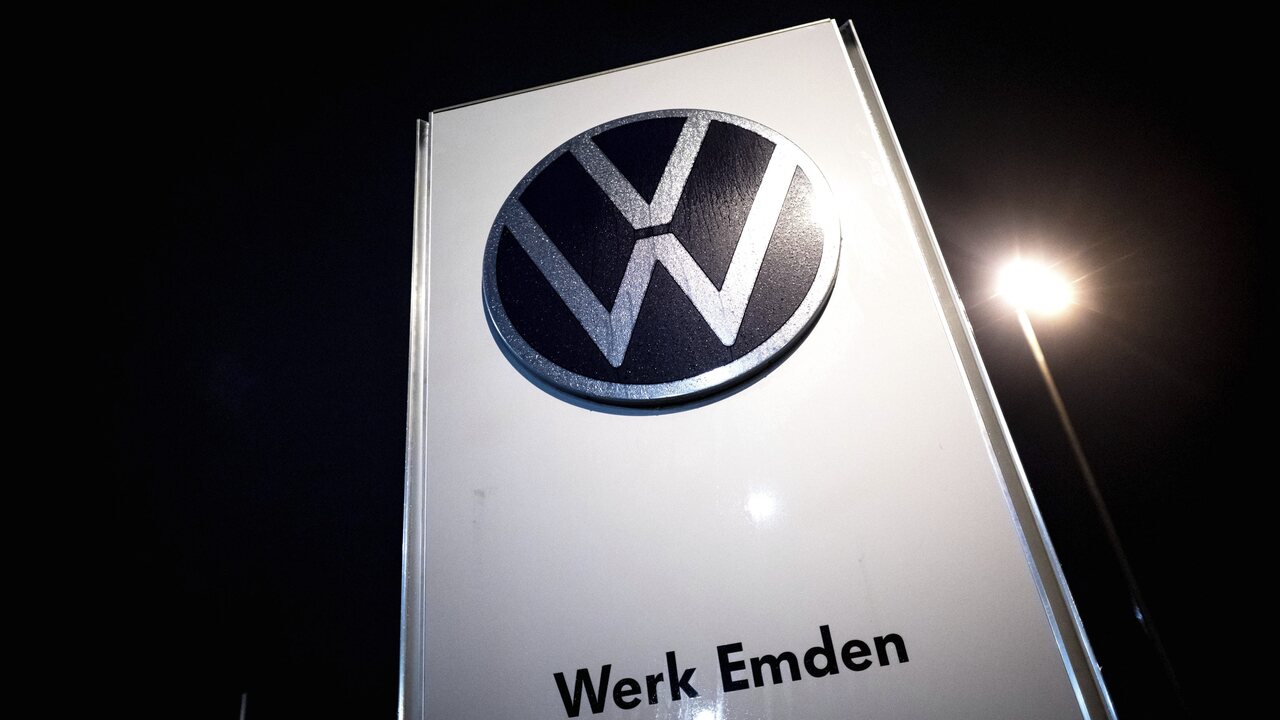Amsterdam Stock Exchange: 7% Fall As Trade War Fears Grow

Table of Contents
Trade War Fears as the Primary Catalyst
The primary catalyst for the Amsterdam Stock Exchange's dramatic fall is the escalating US-China trade war. Increased tariffs imposed by both nations create a climate of significant uncertainty for Dutch businesses heavily reliant on global trade. This uncertainty is a major factor in the market sell-off.
-
Increased Tariffs and Supply Chain Disruptions: The ongoing trade dispute disrupts established supply chains, impacting Dutch exports significantly. Many Dutch companies rely on seamless trade with both the US and China, and the imposition of tariffs increases costs and creates logistical challenges.
-
Global Uncertainty and Negative Investor Sentiment: The escalating trade war fosters a climate of global uncertainty, leading to widespread risk aversion among investors. This negative sentiment translates into a massive sell-off, impacting even companies not directly involved in US-China trade.
-
Impact on Key Dutch Sectors: Specific tariffs disproportionately affect particular sectors of the Dutch economy. For example, the agricultural sector, a significant contributor to Dutch exports, faces considerable challenges due to increased tariffs on agricultural products. Similarly, the technology sector, relying heavily on international supply chains, also suffers from disruptions caused by the trade war. A detailed analysis of the impact on these specific sectors is crucial for understanding the broader market downturn.
Impact on Key Sectors of the Amsterdam Stock Exchange
The 7% drop in the AEX index wasn't uniform across all sectors. While the entire market felt the impact, certain sectors experienced more significant declines than others.
-
Technology Stocks Suffer: Technology companies, heavily reliant on global supply chains and international trade, experienced some of the most significant losses. The uncertainty surrounding tariffs and potential disruptions to supply chains weighed heavily on investor sentiment in this sector.
-
Financial Stocks Showed Vulnerability: Financial institutions also felt the pressure, reflecting broader market anxieties and decreased investor confidence. The uncertainty surrounding future economic growth and the potential for a global recession contributed to the decline in this sector.
-
Energy Sector Relatively Stable (Comparatively): While the energy sector also experienced a downturn, the impact was comparatively less severe than in other sectors. This may be due to the relative stability of global energy demand despite the trade war.
Investor Sentiment and Market Volatility
The sharp decline in the AEX reflects a significant shift in investor sentiment. Risk aversion is prevalent, as investors seek to protect their portfolios from further losses in this uncertain climate.
-
Shifting Investor Confidence: The escalating trade war has eroded investor confidence, prompting a significant sell-off. This lack of confidence is further exacerbated by concerns about the potential for a global economic slowdown.
-
Increased Market Volatility: The Amsterdam Stock Exchange, along with global markets, is experiencing increased volatility. This makes it challenging for investors to predict market movements and plan their investment strategies accordingly.
-
Risk Mitigation Strategies: Investors are employing various strategies to mitigate risks. These include diversifying portfolios, increasing holdings in less volatile assets, and potentially reducing overall exposure to the stock market. Expert advice is crucial during this period of heightened uncertainty.
-
Expert Predictions: Market analysts are divided on the future trajectory of the AEX. Some predict further declines due to persistent trade war uncertainties, while others anticipate a recovery once trade tensions ease. However, a consensus points to continued volatility in the short term.
Potential Long-Term Consequences for the Dutch Economy
The 7% drop in the Amsterdam Stock Exchange has far-reaching implications for the Dutch economy. The potential consequences extend beyond the immediate market downturn and could have long-term effects on economic growth and employment.
-
Impact on GDP Growth: The decline in the stock market could negatively impact GDP growth, particularly if the trade war persists and further dampens investor confidence and business investment.
-
Potential for Increased Unemployment: If businesses are forced to cut back on investments or reduce operations due to the trade war, it could lead to increased unemployment.
-
Government Response and Policy Interventions: The Dutch government is likely to implement policy interventions to mitigate the economic consequences. These might include measures to support businesses affected by the trade war or initiatives to stimulate economic growth. The effectiveness of these interventions will be crucial in shaping the long-term economic outlook.
Conclusion
The 7% fall in the Amsterdam Stock Exchange is a stark reminder of the vulnerability of even developed economies to global trade tensions. The escalating US-China trade war has triggered significant uncertainty, impacting key sectors of the Dutch economy and causing a sharp decline in investor confidence. The increased market volatility demands careful consideration of risk mitigation strategies. The long-term consequences for the Dutch economy remain uncertain, dependent on the duration and intensity of the trade war and the effectiveness of government responses.
Call to Action: Stay informed about developments in the Amsterdam Stock Exchange and global trade relations. Monitor the AEX index closely and understand the implications for your investments in this climate of uncertainty surrounding the Amsterdam Stock Exchange. Consult with financial advisors to navigate the complexities of this volatile market and develop a robust investment strategy to manage risk effectively.

Featured Posts
-
 Frankfurt Stock Exchange Dax Holds Steady Post Record High
May 24, 2025
Frankfurt Stock Exchange Dax Holds Steady Post Record High
May 24, 2025 -
 Polzeimeldungen Essen Heisingen 07 04 2025 Grossbrand Im Wald
May 24, 2025
Polzeimeldungen Essen Heisingen 07 04 2025 Grossbrand Im Wald
May 24, 2025 -
 Find The Best Memorial Day Sales And Deals In 2025
May 24, 2025
Find The Best Memorial Day Sales And Deals In 2025
May 24, 2025 -
 Rybakina Ya Vsyo Eschyo Ne V Luchshey Forme Chestnoe Priznanie Tennisistki
May 24, 2025
Rybakina Ya Vsyo Eschyo Ne V Luchshey Forme Chestnoe Priznanie Tennisistki
May 24, 2025 -
 Ekonomicka Kriza V Nemecku Dosledky Pre Zamestnancov
May 24, 2025
Ekonomicka Kriza V Nemecku Dosledky Pre Zamestnancov
May 24, 2025
